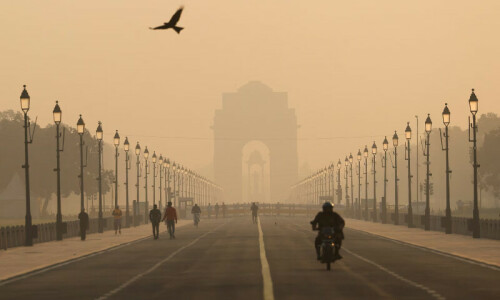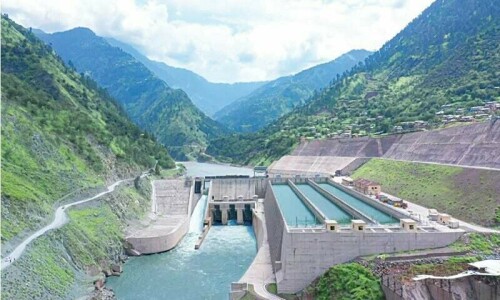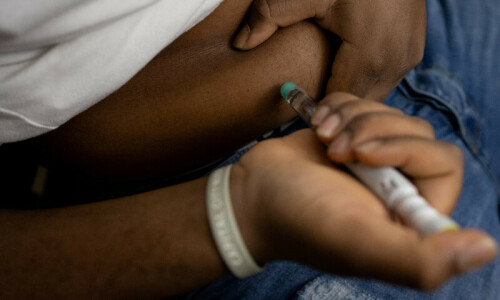
KABUL: Dealing with bribe demands from petty officials and police is largely part of daily life in Afghanistan, but police are now being accused of stealing from each other.
Afghan authorities are investigating an alleged scheme to cheat thousands of police out of salaries worth nearly half a million dollars, with the governor of remote Nuristan province blaming senior officers and his predecessor of involvement.
Current Nuristan Governor Tamim Muhammad Nooristani said former police chief Shamul Rahman had been arrested and released pending investigations, while former governor Jamaluddin Badr-Jov was also being questioned over involvement in the scheme.
Both, Nooristani said, were believed to have benefited from a scheme run by a former police finance director in which salaries were siphoned off and records kept in a “black book” detailing money paid to around 200 police and officials to buy their silence.
Police corruption is a major grievance for many Afghans, eroding confidence in fledgling local security forces as most foreign troops look to leave the country by the end of 2014.
“The most on the list was the former governor, who had about 8 million Afghani ($163,000), and the former police chief had 5 million Afghani ($102,000),” Nooristani, who became governor eight months ago, told Reuters.
“The former chief of police is under arrest in Kabul. But still, although this is Afghanistan, I don’t understand why the former governor is still going around and he is not yet arrested,” he said.
Afghanistan’s 149,000 police are in large part funded by international donors, with a policeman typically taking home $165 a month in a country where a third of the 30 million population live beneath the poverty line.
Donors have paid around $2.2 billion into a trust fund for police salaries that is administered by the UN Development Programme, with roughly one-third donated by the United States.
But eight in 10 Afghans do not believe their police force is ready to take charge of law and order, a United Nations survey found in January, underscoring worries about the pace of transition to fully Afghan security control of the country.
Many of the 7,000 Afghans surveyed saw police as drug-takers, corrupt or biased, with one in five saying they or a household member had been asked for a bribe by a police officer.
Colonel Ghulamullah Khan, the new police chief for Nuristan, which lies northeast of Kabul in the rugged foothills of the Hindu Kush range adjoining Pakistan, said hundreds of police had gone unpaid for three months in an area where security forces have struggled to repel Taliban insurgents.
“They will receive their salaries. The Interior Ministry is working on it,” Khan said. “Nearly 10 people have been arrested in connection with this case.”
Nooristani said most of the $449,000 missing had since been recovered, while investigations were still ongoing into the whereabouts of larger amounts.
“But these two big money (sums) from the police chief and former governor are still under investigation,” he said. “It’s been going on for I don’t know how many years, but we just discovered it.”
Badr-Jov, the former governor, rejected the allegations and said he had not been in charge of the province, once known as Kafiristan (Land of the Infidels) until local people converted en masse to Islam only a century ago, for close to 10 months.
“How is it possible for me to keep this much money for this long? Am I his banker?” he said, instead pointing the blame back at Nooristani.
He said he had already approached Parliament and declared openly that police were leaving Nuristan because they weren’t being paid.
Nooristani said the reason the scheme had gone undiscovered for so long was because Nuristan was so remote.
“Now everything is getting better. But this system, the government here is Nuristan was totally broken down. It takes time to rebuild it back up again.”













































Dear visitor, the comments section is undergoing an overhaul and will return soon.